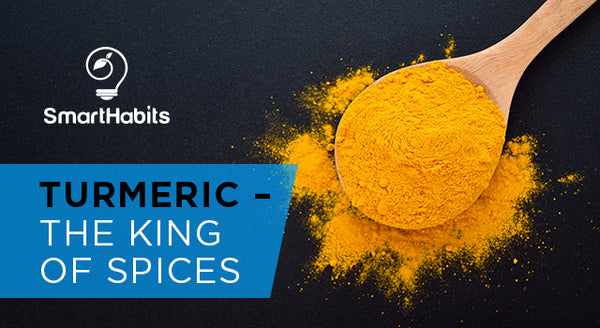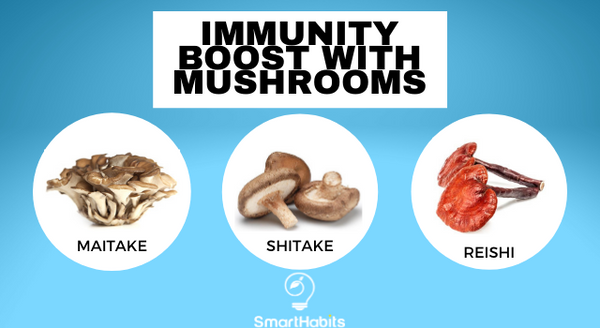Collagen supplements are becoming more and more popular in the health and beauty supplement industry. They are often recommended for anti-anti-aging and skin health, as well as joint health. Currently, in the market, there are both animal-based and plant-based collagen supplements available. This article will explore the role of collagen in the body, how it’s made, and discuss what the research says about collagen supplements and their efficacy in improving the skin’s appearance and restoring joint health.
What is Collagen?
Collagen is a protein made in the body and is the most abundant protein in connective tissue. The body has so much collagen, that most healthy human bodies are one-third collagen! Our bodies produce several different types of collagen, each with slightly different roles. Collagen type I and III are found in the skin and collagen type II and III make up cartilage which is found in joints and structures like the nose and ears (7).
Collagen Production and Breakdown
Our bodies naturally create collagen on a continual basis, as long as all the building blocks are available. Collagen is made from three amino acids, glycine, proline, and hydroxyproline and the process requires several nutrients, known as cofactors. These cofactors include vitamin C and zinc. A deficiency in any one of these building blocks or cofactors will slow down collagen production.
In addition to nutrient or amino acid deficiencies, there are other factors which speed up collagen loss and breakdown. As we age, collagen breakdown begins to outpace collagen production. Typically, around 35-40 years of age, collagen production is less than collagen breakdown, and by about the age of 60, collagen levels are half of what they were at age 25 (7). Collagen loss is the main reason for the development of wrinkles, fine lines, and loss of skin hydration, which people usually begin to notice around age 35. Typically, joint problems, such as arthritis begin after the age of 40, and breakdown of cartilage due to collagen loss is often one of the main culprits (2).
Collagen is vulnerable to oxidative stress and photo-aging from sun exposure, smoking, alcohol, stress, as well as lack of sleep. It is important to keep all of these factors in mind when looking to restore collagen levels in the body (2).
Collagen Supplements
Collagen supplements have become a popular way to replace collagen in the body, and boost the body’s natural production.
There are two types of collagen supplements on the market:
- Animal-derived
- Plant-derived
Animal Derived Collagen Supplements
Animal-based collagen supplements are derived directly from animal sources and contain formed collagen proteins. The collagen is extracted from the connective tissue of animals, such as their hooves, bones, and skin. Research shows that collagen proteins from animal-based collagen supplements are very well absorbed. Recent studies have found that approximately 90% of the collagen is absorbed in the digestive tract and is deposited directly into the skin (1,2). It has also been found that preformed collagen absorbs better than single amino acid supplements, such as proline (3). The absorption of the collagen proteins causes the body to create hyaluronic acid, which is created in the deep layer of the skin, known as the dermis. Hyaluronic acid is responsible for hydration of the skin and plays a role in skin firmness (6). Collagen supplements also stimulate fibroblasts, which are cells in the dermis, to begin producing more collagen (3). Research on taking animal-derived collagen supplements for 12 weeks, have found that it improves skin hydration, improves the look of wrinkles, and increases the firmness of the skin (1,2,3).
Studies looking at the impact of collagen type II supplements on joint health have also been positive. Recent research on collagen supplements and arthritis have found that joint pain, physical function, and stiffness are all improved with supplementation in as little as 12 weeks (4,9). In addition, taking collagen supplements before exercise can help reduce joint wear and tear, and reduce the risk of injury (8).
Plant Derived Collagen Supplements
Plant-based collagen supplements do not contain any preformed collagen, as collagen is not a protein that plants naturally make. These supplements contain a concentrated source of the building blocks the body needs to create collagen itself, such as the amino acids proline and glycine. Typically these supplements also contain cofactors such as vitamin C, and antioxidants such as vitamin E, along with herbs which have a traditional use of improving the skin’s appearance.
Research has shown that intake of the amino acid proline restores collagen levels after exposure to UV radiation, however as previously mentioned, preformed collagen is more readily absorbed (3,5). There has been more research conducted on animal-derived collagen, however, the body is designed to make its own collagen when continually provided the building blocks and nutrients it needs to do so.
Other Considerations
It is important to recognize that there are other factors which impact the look and health of the skin. Certain nutrient deficiencies may be responsible for dry skin, such as a fatty acid deficiency. Low intake of omega 3 fats and omega 6 fats can impair the skin’s moisture barrier resulting in roughness and scaling. It is essential to ensure your intake of flaxseed oil, borage oil, and fish oil is sufficient to avoid deficiency (3).
As mentioned previously, specific nutrients such as vitamin C, are required for the production of collagen. Low intake of vitamin C can halt collagen production. In addition, vitamin C and E are essential in protecting the skin against oxidative damage and photo-photo-aging (2). Foods high in vitamin C include bell peppers, kale, and broccoli. If vitamin C is taken as a high dose supplement (more than 500mg) much of it will be lost in the urine, so obtaining vitamin C from food sources spread throughout the day may be a better option to continually support natural collagen production.
Conclusion
Whether you decide to include collagen supplements in your daily regime or not, it is important to remember that proper lifestyle choices, such as getting enough rest, eating a diet high in vegetables and antioxidants, using sunscreen, and refraining from smoking are fundamental to protecting against collagen loss as well as looking and feeling healthy. Both plant-based and animal-based collagen supplements provide the body with an extra boost to produce and maintain collagen and research shows that collagen supplementation is effective. The decision of whether to choose animal or plant derived collagen supplements lies in your personal beliefs regarding animal consumption. There is more research on animal-derived collagen supplements, however, our bodies are designed to create collagen given the tools needed.
References
- Borumand, M., & Sibilla, S. (2014). Daily consumption of the collagen supplement Pure Gold Collagen® reduces visible signs of aging. Clinical interventions in aging, 9, 1747.
- Borumand, M., & Sibilla, S. (2015). Effects of a nutritional supplement containing collagen peptides on skin elasticity, hydration and wrinkles. Journal of Medical Nutrition and Nutraceuticals, 4(1), 47.
- Choi, S. Y., Ko, E. J., Lee, Y. H., Kim, B. G., Shin, H. J., Seo, D. B., ... & Kim, M. N. (2014). Effects of collagen tripeptide supplement on skin properties: A prospective, randomized, controlled study. Journal of Cosmetic and Laser Therapy, 16(3), 132-137.
- Lugo, J. P., Saiyed, Z. M., & Lane, N. E. (2015). Efficacy and tolerability of an undenatured type II collagen supplement in modulating knee osteoarthritis symptoms: a multicenter randomized, double-blind, placebo-controlled study. Nutrition journal, 15(1), 14.
- Murakami, H., Shimbo, K., Inoue, Y., Takino, Y., & Kobayashi, H. (2012). Importance of amino acid composition to improve skin collagen protein synthesis rates in UV-irradiated mice. Amino Acids, 42(6), 2481-2489.
- Ohara, H., Ichikawa, S., Matsumoto, H., Akiyama, M., Fujimoto, N., Kobayashi, T., & Tajima, S. (2010). Collagen‐derived dipeptide, proline‐hydroxyproline, stimulates cell proliferation and hyaluronic acid synthesis in cultured human dermal fibroblasts. The Journal of dermatology, 37(4), 330-338.
- Ramachandran, G. (Ed.). (2013). Biochemistry of collagen. Springer Science & Business Media.
- Shaw, G., Lee-Barthel, A., Ross, M. L., Wang, B., & Baar, K. (2016). Vitamin C–enriched gelatin supplementation before intermittent activity augments collagen synthesis. The American journal of clinical nutrition, 105(1), 136-143.
- Zdzieblik, D., Oesser, S., Gollhofer, A., & König, D. (2017). Improvement of activity-related knee joint discomfort following supplementation of specific collagen peptides. Applied Physiology, Nutrition, and Metabolism, 42(6), 588-595.
Statements made on this website have not been evaluated by the U.S. Food and Drug Administration. Information provided by this website or this company is not a substitute for direct, individual medical treatment or advice. It is the responsibility of you and your healthcare providers to make all decisions regarding your health. SmartHabits recommends that you consult with your healthcare providers regarding the diagnosis and treatment of any disease or condition. Products sold on this website are not intended to diagnose, treat, cure, or prevent any disease.




